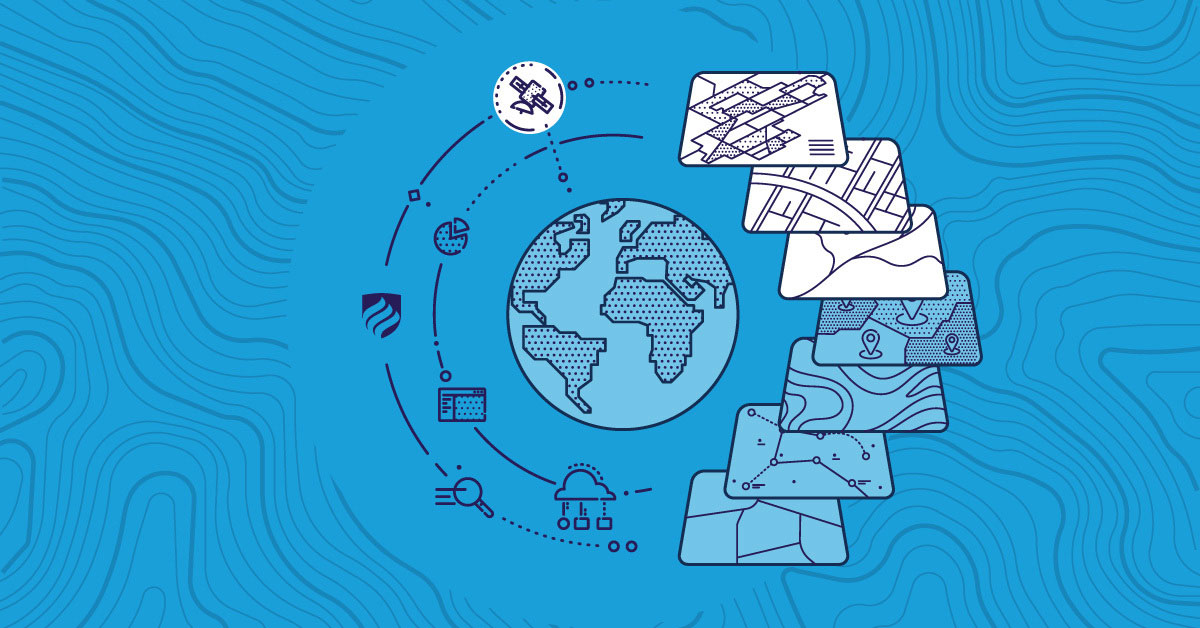What Skills Does a GIS Analyst Require?
GRADUATE STUDIES | 4 MIN READ

The role of the GIS analyst has rapidly expanded in the last 20 years as mapping technologies become central in our everyday lives.
If you’ve ever been curious about this highly sought-after career, now is a great time to dive in. Job prospects remain bright. The field needs talented people. And, with a few key skills in your tool belt, you can prepare yourself to take on the role.
But first, some background. Geographic information systems were originally created to help cartographers and geographers with mapping and surveying techniques. Now, industries of all types use these systems for tasks as varied as tracking wildlife, finding the best delivery routes and identifying where new infrastructure exists in neighborhoods.
This is where the GIS analyst comes in. Analysts study and break down the data sets according to certain criteria. They help design databases, support colleagues that use GIS and integrate GIS with other technology. Beyond that, they also create well-written reports on their findings.
So, what do you need to get started?
5 Skills Every GIS Analyst Needs
In short, the most successful GIS analysts:
- Possess strong IT skills
- Can manipulate complex databases
- Are highly detail-oriented
- Are clean writers and thoughtful communicators
- Can problem-solve individually and on a team
GIS analysts have an extensive quantitative skill set. Most are proficient in programming languages such as R or Python. Some, in addition, might know front-end design languages such as HTML, CSS, JavaScript and a variety of mapping languages.
Spatial analysts need experience with mapping tools such as vector and raster data, and spatial modeling.
Because they work at the intersection of data analysis, programming and cartography, they should be detail-oriented and masterful at solving problems. An analytical mindset is a must. The tools a GIS analyst uses are critical in joining data sets together to create new information or to spot patterns.
But it’s not just a numbers game. Working with colleagues across disciplines requires clear and efficient written and verbal communication as well as strong interpersonal skills.
Organization also factors heavily into GIS analysts’ workload. They often are in charge of maintaining a “geographical library,” in which maps are stored and then prepared as resources for reports, converted into different formats or transferred as data between systems.
Creativity plays an important role as well. Internet apps and tools are developed by analysts for use on websites by corporate clients and to improve information streams.
So many organizations store location-based information in GIS databases. All of them need the talents of a GIS analyst. As a GIS analyst, you can use this data to design digital maps, uncover patterns and trends, and digitize paper maps into user-friendly data sets that yield new information.
GIS Education Requirements and Job Prospects
Many GIS analysts earn their bachelor’s degree in an area that will help bolster the broad skill set mentioned above. For example, you might study geography, computer science or earth science. Others specifically major in geographic information systems. Common classes include GIS and mapping, statistics, cartography, historical geography and measurement analysis.
Many go on to earn a master’s degree in Geographic Information Systems to improve their career prospects and earnings potential.
Finally, the job prospects for a GIS analyst are bright, with nearly 20% job growth predicted over the next six years. The average salary, according to the U.S. Bureau of Labor Statistics, tops $68,000 a year.
Study to Become a GIS Analyst
Getting a GIS-focused education can help you build that technical competency needed to join the field. At Elmhurst University, you can pursue either a master’s degree in GIS or a graduate certificate in GIS.
Request more information today!




